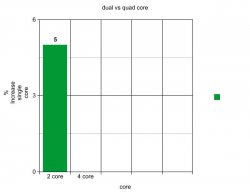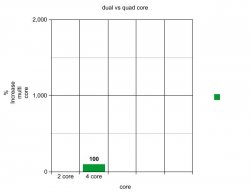Its really simple what has happened here. For a long time the Mac Mini was advertised as an "entry level mac" but could be made realistically into a poor man's mac pro. Everyone was happy. Life was good.
However Apple realized that they can make more money by streamlining the bill of materials on the Mac Mini, "reset" it to their interpretation of "entry level," and hopefully force more people to buy iMacs and Mac Pros which they actually make even more money on.
From a purely cynical business perspective, its a win-win. In the grand scheme, those unhappy with a non upgradeable and non quad core mac mini are a minority. A very vocal one, but a minority nonetheless. Apple will continue making a ton of mac minis and making a ton of money regardless of how upset a portion of the population is.
I agree it is sad, but people need to stop thinking Apple is trying to get OSX into the hands of more users. That was the goal in the 90s - stealing market share from Windows. Today they realize the core of their profits come from expensive high end machines, and mostly their mobile devices.
When you realize what Apple is doing and why, it makes a lot of business sense even if you don't like it.





